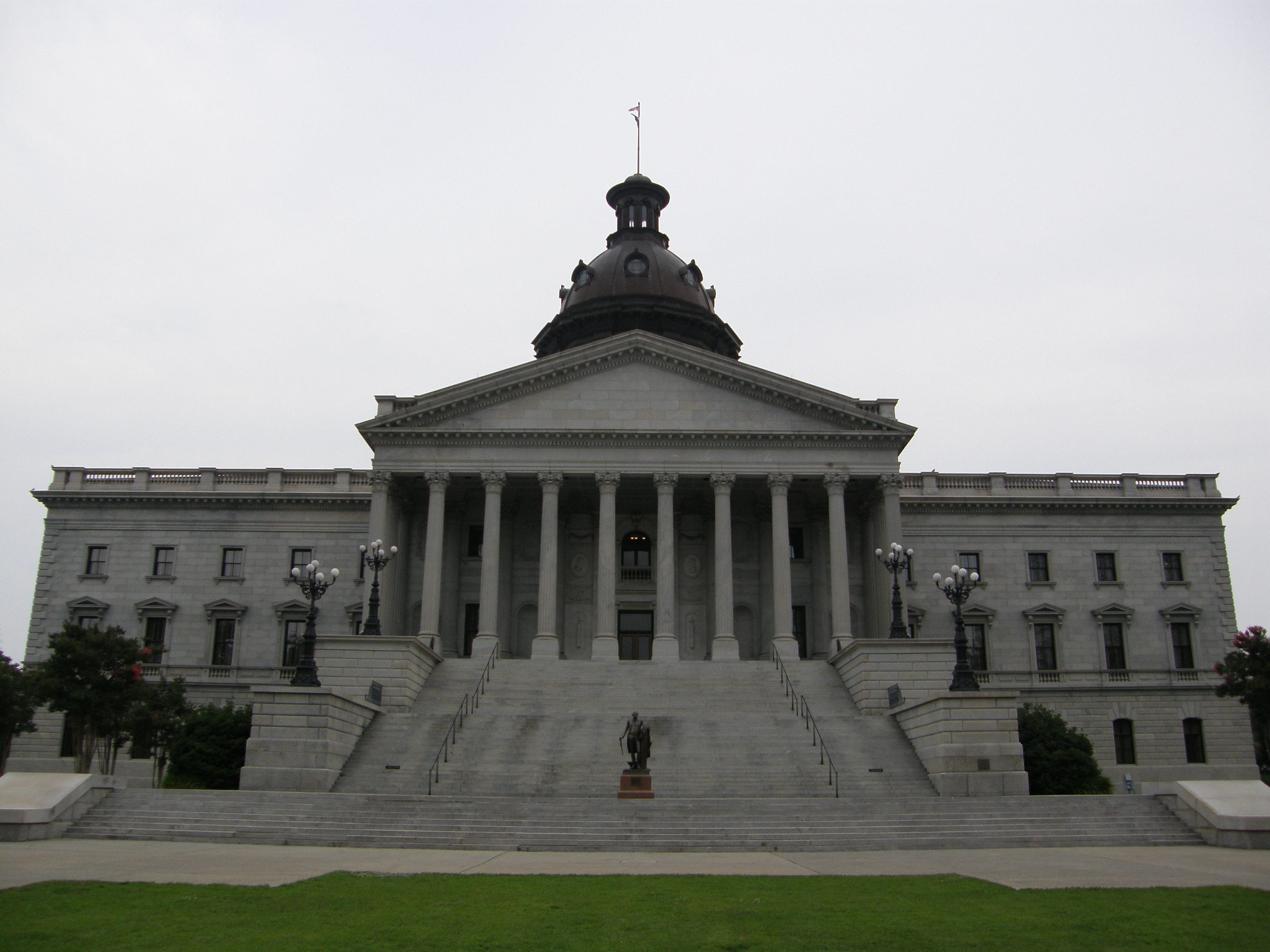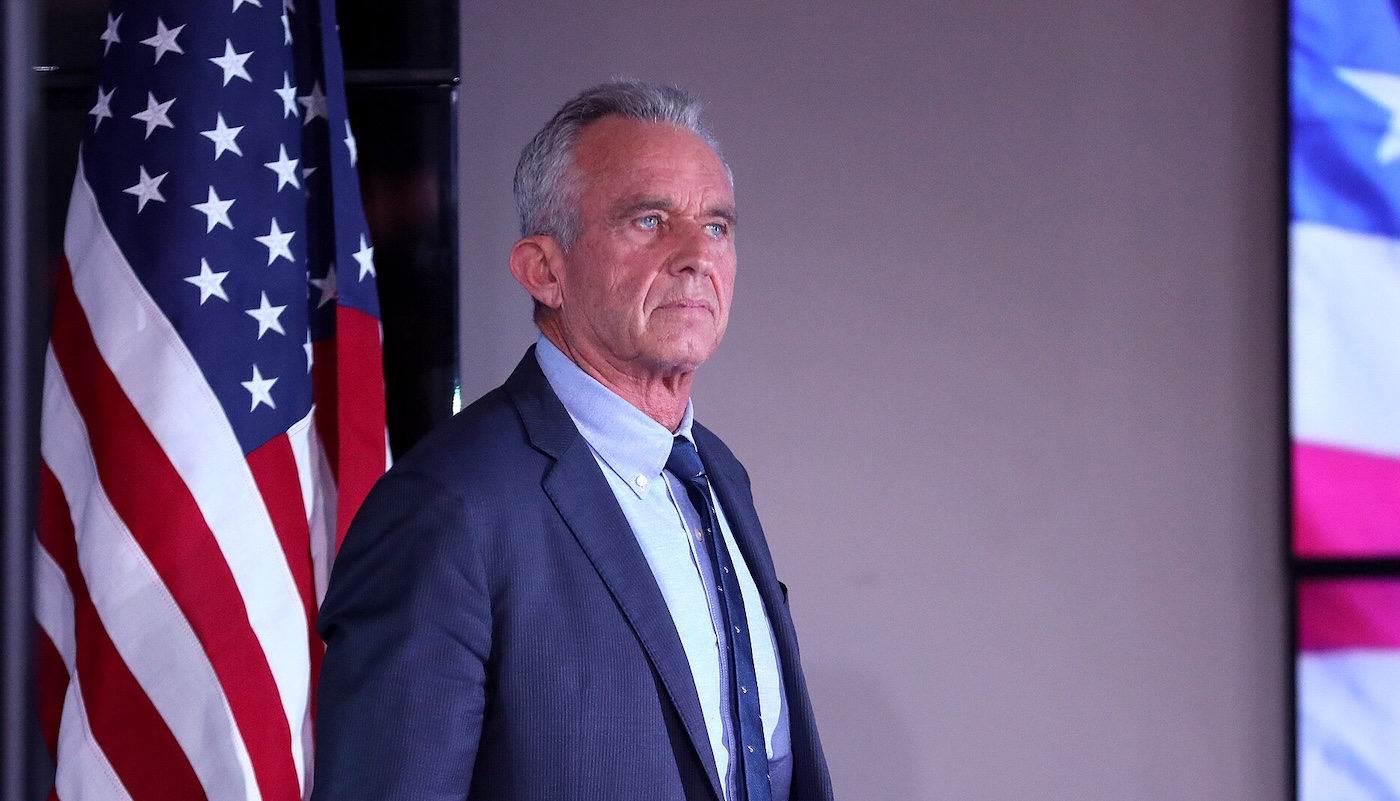With the 2022 elections already underway in some parts of the country, several Republican gubernatorial candidates in highly contested races across key battleground states are not receiving adequate financial backing from national GOP organizations.
In Michigan, where GOP challenger Tudor Dixon is set to face off against incumbent Democrat Gov. Gretchen Whitmer, national Republicans are seemingly pulling the plug on seriously supporting Dixon’s campaign, with ad spending from major GOP groups drying up as Election Day approaches. According to NBC News, as of Sept. 28, “Whitmer and the Democratic groups supporting her re-election are crushing Dixon and the GOP in ad spending, $16.5 million to $924,000.”
“Through Nov. 8, Whitmer and the Democrats have reserved $24 million in ads for the Michigan governor’s race. Republicans have reserved nearly $4 million — most of it from the Republican Governors Association [(RGA)], which is prioritizing other states even after its co-chairs cheered Dixon’s nomination and said they ‘couldn’t be more excited’ to support her in the general election,” the report reads. “Dixon’s campaign has spent just $25,000 on paid ads since the primary. Her campaign’s last finance report showed her with $523,000 on hand, compared to Whitmer’s $14 million.”
While RGA has budgeted roughly $3.5 million in ad spending for Dixon’s campaign, the amount is small compared to spending in other gubernatorial races. Back in early August, for instance, the group announced that it would be purchasing $11 million worth of commercials in Arizona to ensure that Gov. Doug Ducey’s successor “is of the same political party.”
While legacy media polling designed to manipulate the electorate has shown Whitmer with unrealistic leads over Dixon, more accurate firms such as The Trafalgar Group have forecasted the race to be much closer. According to a recent survey from the organization, Whitmer holds nearly a six-point lead over Dixon (50.9 to 45.1 percent), which falls outside of the poll’s 2.9 percent margin of error.
In recent weeks, Dixon has attempted to make parental rights a signature issue of her campaign after a stunning report revealed that Whitmer’s Education Department is actively encouraging teachers to “sexually transition” students behind their parents’ backs. In addition to calling for the state superintendent’s resignation, Dixon has backed a proposal called the “Age-Appropriate Classroom Instruction Act,” which would “require school districts to ensure that their schools do not provide classroom instruction on sexual orientation or gender identity in kindergarten through third grade or in any manner that is not age or developmentally appropriate.”
When pressed by The Federalist about whether the campaign was concerned about the lack of financial support from national GOP groups when compared to other gubernatorial races, Dixon’s communications director Sara Broadwater emphasized that Dixon “has the full support of RGA and allied groups,” pointing to the reservation of ad space by the RGA-affiliated PAC, “Get Michigan Working Again.”
“Tudor is within striking distance after over $23M in ads have been spent against her – Whitmer knows it’s close, which is why she’s still spending over $2.5M a week attacking Tudor,” Broadwater said. “The reality is that Gretchen and her allies can’t spend away the disaster she has created during her reign over the past four years.”
Also set to appear on Michiganders’ ballots next month are two Democrat-backed amendments that would enshrine abortion in the state constitution and completely overhaul Michigan’s election laws.
But Michigan isn’t the only place where national Republican groups seem to be abandoning the state’s Republican gubernatorial candidate. In Pennsylvania, where Republican Doug Mastriano is going head-to-head with Democrat Josh Shapiro, RGA has yet to offer any significant support for Mastriano’s campaign. Unlike Shapiro, who has received roughly “$5.1 million between early June and mid-September” from the Democratic Governors Association, RGA is among the many big-name GOP organizations absent from Mastriano’s list of financial backers.
“As previous reports showed, Mastriano’s campaign is propped up by smaller donations,” a report from The Morning Call reads. “Nearly $420,000 of the $3.1 million he raised in the past three months were from contributions of $250 or less.”
Without naming names, Mastriano reportedly referenced the lack of funding from national GOP groups during a recent Facebook Live video, saying that they have “not been forthcoming in supporting this campaign.”
“Pennsylvanians, if you’re giving money to these national organizations, just know the money is not coming to Pennsylvania,” he said.
On Monday, Mastriano’s campaign announced that it would be investing $1 million in a series of television and digital ads set to air throughout the final weeks of the election cycle. The purchase marks the first time throughout the general election that Mastriano’s team has directed funds toward broadcast ads.
Despite the lack of support from major Republican organizations, a recent poll from The Trafalgar Group has shown the race between Mastriano and Shapiro to be closer than most corporate press outlets have indicated, with Shapiro holding a slight lead of roughly two points (47.7 to 45.9 percent).
RGA did not respond to The Federalist’s request for comment on why they aren’t making greater investments in Michigan and Pennsylvania or if the group plans to commit more financial resources to either state ahead of Election Day.
Shawn Fleetwood is a Staff Writer for The Federalist and a graduate of the University of Mary Washington. He also serves as a state content writer for Convention of States Action and his work has been featured in numerous outlets, including RealClearPolitics, RealClearHealth, and Conservative Review. Follow him on Twitter @ShawnFleetwood





 Politics2 years ago
Politics2 years ago
 Politics2 years ago
Politics2 years ago
 Politics2 years ago
Politics2 years ago
 Health2 years ago
Health2 years ago
 Politics2 years ago
Politics2 years ago
 Politics2 years ago
Politics2 years ago
 Entertainment2 years ago
Entertainment2 years ago






